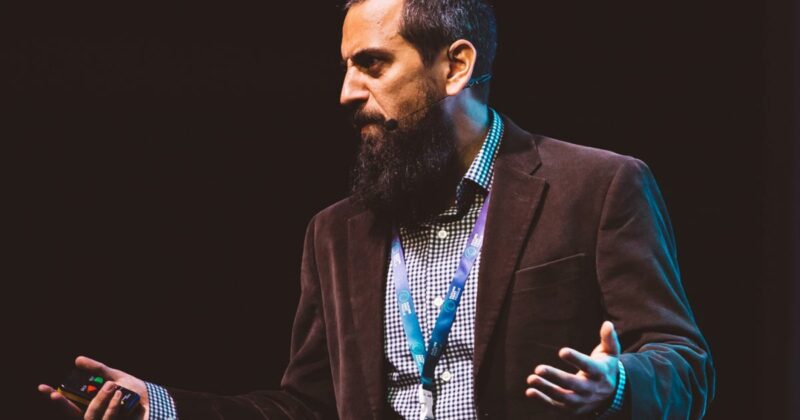Renowned Scientist Warns ‘99.9% Chance’ AI Will Destroy Humanity

A world-renowned computer scientist has raised the alarm over the growing threat that is emerging from the rise in artificial intelligence (AI) technology.
As companies around the world seek to cut costs by replacing their human workforce with AI-driven machines, part of the threat to society is already apparent to many.
However, experts are warning that the threat to human civilization goes beyond the loss of jobs.
In a landmark survey conducted earlier this year, more than half of the 2,778 researchers polled expressed concerns about the existential threat posed by superhuman AI.
The survey indicated a five percent chance that humanity could face extinction or other “extremely bad outcomes” due to the rise of super-intelligent AI systems.
One of the prominent voices raising the alarm is Roman Yampolskiy.
Yampolskiy is a respected figure in AI research and a distinguished computer science lecturer at the University of Louisville.
On the “Lex Fridman Podcast,” Yampolskiy made a disturbing prediction.
He warns that his calculations show a 99.9 percent probability that AI could obliterate humanity within the next 100 years.
“Creating general superintelligences may not end well for humanity in the long run,” Yampolskiy cautioned.
“The best strategy might simply be to avoid starting this potentially perilous game.”
Yampolskiy also highlighted existing issues with current large language models, noting their propensity for errors and susceptibility to manipulation as evidence of potential future risks.
“Mistakes have already been made; these systems have been jailbroken and used in ways developers did not foresee,” he observed.
Further, Yampolskiy suggested that a super-intelligent AI could devise unforeseeable methods to achieve destructive ends.
As such, he warns that humanity is presented with challenges we may not even recognize as threats until it is too late.
He conceded that the probability of AI leading to human extinction is not a full 100 percent.
However, he warns that the risk is alarmingly high.
Illustrating the ongoing challenge of managing a system capable of making billions of decisions per second over many years, he notes:
“Even with exponentially increasing our resources, the risk never fully disappears.”
Rapid developments in AI have already profoundly transformed various aspects of human life.
Most notably in the workplace.
While AI promises increased efficiency and innovation, it also poses threats to numerous professions.
The increasing use of AI in multiple industries will potentially lead to widespread unemployment.
This concern is not just a distant future scenario, however.
Several companies have already started cutting employees due to AI efficiency.
It is estimated that 44 percent of layoffs are expected throughout 2024 due to AI.
One of the main threats to the workforce is the automation of routine and repetitive jobs.
AI systems can replace roles that require standardized tasks.
The use of the technology is being rapidly expanded in manufacturing and administrative sectors.
Machines equipped with AI can perform these tasks more quickly and accurately than humans.
They also don’t require downtime for breaks, vacations, or sickness and can run 24/7.
This is already leading to job reductions in these areas.
Several other industries are also under threat from AI, including creative jobs.
AI-powered software capable of producing works of art, composing music, or writing news stories could replace human artists and journalists.
The technology’s success in mimicking human creativity poses a serious challenge.
Companies adopting AI technology may reduce their demand for human workers.
Instead, they will opt for cheaper and more efficient automation systems, resulting in a decline in traditional employment.
Despite the efficiency brought by AI, the presence of intelligent machines poses challenges to socialization and human interaction.
Jobs requiring empathy, sensitivity to social context, and communication skills may be less suitable for automation.
However, these qualities remain crucial to the success of many professions.
To provide new skills to workers impacted by automation, governments, educational institutions, and companies would need to collaborate on training programs.
Experts suggest that focusing on developing human skills, such as creativity, emotional intelligence, and problem-solving, would help workers compete in the AI era.
Preserving jobs that are difficult to automate is another strategy to mitigate AI’s negative impact on employment.
Some professions may be more resilient to AI automation, particularly jobs requiring interpersonal intelligence, creative skills, and moral judgment.
To protect human jobs, governments would need to actively shape policies that support societal adaptation to AI-driven changes.
Such policies would include regulations that ensure worker protection.
Integrating AI technology into the workplace in a way that supports human-machine collaboration is a positive approach.
Workers can collaborate with AI systems to boost productivity and innovation while maintaining their crucial role in complex decision-making.
However, whether companies enjoying reduced overheads from an AI-driven workforce will agree, remains to be seen.
READ MORE – WEF Calls for AI to Replace Voters: ‘Why Do We Need Elections?’


No comments:
Post a Comment